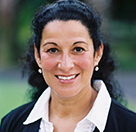• by Rosana G. Rodríguez, Ph.D., and Abelardo Villarreal, Ph.D. • IDRA Newsletter • June – July 2012 •

A systemic view of policy and practice change requires inclusion of the most important stakeholders in the educational process: the students. Student voices are fundamentally critical in any successful school reform effort. If we want to reduce student attrition and ensure greater participation and engagement of students resulting in higher academic achievement and college readiness, we must listen to them, gain their confidence and commitment, and collaboratively set goals and objectives. We cannot ignore what often are voices in the wilderness and must genuinely factor them into schools’ decision-making processes and school governance.
Two landmark court cases, Mendez vs. Westminster and Brown vs. Board of Education, demonstrated the need for school governance to critically look at school systems, policies and practices, and examine how these affect the power of schools to hold on to students and the quality of education provided all students. Considering community, parent and student voices is inherently implied in these cases.
IDRA’s Quality Schools Action Framework™ identifies an inclusive school governance model where parents and students play a major role as co-designers of a school system that ensures graduation and college readiness for all. It speaks to the need to embody democratic principles by keeping the public in public schools and engaging citizens, leaders and policymakers around a common vision that calls us to act collectively in strengthening four key school system indicators: parent and community engagement, student engagement, teaching quality, and curriculum quality and access. (Robledo Montecel & Goodman, 2010)
Recently, students from Canton High School in Mississippi participating in IDRA’s Pathways project, funded by the Charles Stewart Mott Foundation, shared their photojournalism skills to make a riveting case for what must be addressed through effective school governance. High school students used the civil rights promises of the landmark cases to capture images depicting barriers and opportunities for graduation and college access (Posner, 2012). Their compelling images inspired the adults into collective action and graphically illustrated the need to expand pathways to higher education around several dimensions, including affordability, student preparation, institutional persistence and resources. Excerpts of their poignant stories and photographs are on IDRA’s website, along with images, essays and articles from other students throughout the Southwest involved in the larger initiative.
IDRA’s Pathways project keeps student voice at the center of action planning, building on IDRA’s Mendez and Brown Fulfilling the Promise Blueprint Dialogues, which has gathered together cross-sector Latino and African American leaders throughout states in the South and Southwest to develop joint action for closing gaps and preparing students for college success.
Students as co-designers of a college-going culture in their schools
Student voice is a fundamental element in planning for effective governance as communities collaborate with their schools in identifying and addressing barriers to graduation and college going. When given the opportunity to do so, students can play a fundamental role in informing school governance from key perspectives: (1) as informed recipients of the type of education being provided who can offer insights that are key to teachers, administrators and school boards; (2) as partners in the teaching and learning process who can describe the effectiveness of the school’s efforts to prepare students for college and career; and (3) as pro-active advocates for relevance in both teaching quality and curriculum quality.
Students partnering with schools in mutually beneficial educational activities
Student and community voices are indispensable elements in educational governance and accountability systems. As diverse stakeholders in the educational process, we must begin to listen to youth voices through enlightened relationships based on mutual respect and recognition of their perspectives and needs as the next generation of leaders. Their voice is critical to sharing in the creation of stronger school systems and in the overall economic and social health of our communities.
Students as evaluators
Effective businesses regularly check in with customers to learn how their product, service or business is faring. Similarly, the perspective of students is essential in ascertaining the effectiveness of the teaching and learning process. Students’ sense of efficacy and preparedness for graduation, college and career has been documented as a key factor for future success. Therefore, we must strive to include their perspective and feedback at key points in the continuum of learning through age-appropriate and multi-dimensional means that can include student forums, essays, poetry, photography and theatre. Dynamic governance includes students on school committees to interact and exchange ideas in the planning process with teachers, administrators, parents, boards and community.
Students as pro-active advocates for rigor and relevance
Schools and colleges much reach out to their community and business leaders to check for relevance in the curriculum and preparedness of students to respond effectively to local needs and a more global economy. Conversely, students who are preparing for college and career can provide insights as to the relevance of their preparation, the quality of the teaching they are receiving, and the access they have to a curriculum that will prepare them well to compete and succeed in college and enter the world of work and meaningful civic engagement.
Effective governance and accountability demands student inclusion
Certainly as educators, one of our greatest privileges is preparing students for graduation and success in college. Effective governance and accountability demands inclusion of student voice as we seek research and policy solutions aimed at changing the status quo. It calls on us to initiate a new and enlightened relationship with students, recognizing that their voices are critical to illuminating and guiding the change process to ensure access, equity and excellence in education. We must more purposefully seek and create new mechanisms to engage and listen to these new voices for the wisdom they can provide.
Our students possess unique insights and powerful gifts, that when combined with educators, parents and community perspective, can help us build stronger schools together. Failure to do so places our society and nation at risk. It is time we recognize the blessing of student voice in co-designing a better future.
Resources
Posner, L. “Canton Mississippi Youth… On Opening Pathways to College,” IDRA Newsletter (San Antonio, Texas: Intercultural Development Research Association, March 2012).
Robledo Montecel, M., & Goodman, C.L. (eds). Courage to Connect – A Quality Schools Action Framework (San Antonio, Texas: Intercultural Development Research Association, 2010).
Rosana G. Rodríguez, Ph.D., is director of development at IDRA. Abelardo Villarreal, Ph.D., is director of IDRA Field Services. Comments and questions may be directed to them via e-mail at feedback@idra.org.
[©2012, IDRA. This article originally appeared in the June-July 2012 IDRA Newsletter by the Intercultural Development Research Association. Permission to reproduce this article is granted provided the article is reprinted in its entirety and proper credit is given to IDRA and the author.]



